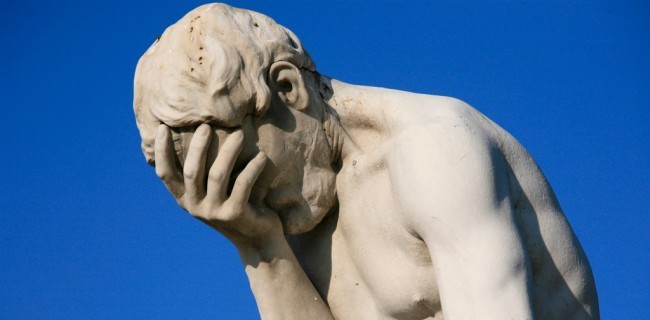I’m struck by how many people feel badly about themselves: thinking they’re failures for not “doing enough,” faulting themselves for not having accomplished anything, walking around feeling guilty. Feeling self-critical is not necessarily unhealthy, but like any activity of mind, it can move into unhealthy territory.
I find it particularly ironic that many of my contemporaries feel this way, people who are nearing or are well into their seventies. Many members of my generation came of age during a period of social unrest and change; the war in Vietnam, the use of psychedelics and pot, the women’s and civil rights’ movements all supplied ample energy for social engagement. In one way or another, most of us had to take a stand for what we believed in, and if we had children, we passed some of those beliefs on to the next generation.
The twenty-first century looks to be no less challenging than the twentieth, which is to say the world remains deeply troubled. Those troubles are not exactly the same as those in the past, though issues of poverty, population growth, military conflict, feel eerily familiar. Added to that list are climate change, corporate globalization, and the dominance of digital technology, each of which pose daunting challenges. It doesn’t help that we know more about what’s happening half-way across the globe than ever before.
When confronted with problems we cannot solve as individuals, the sense of powerless or even helplessness can turn inward, and manifest as self-denigration. When that happens, we question our worth as people, lose confidence in ourselves and others and sink into bouts of anxiety and depression. The anger we might feel becomes self-directed.
In a society such as ours which elevates “rugged individualism” and self-sufficiency to its highest ideals, feelings of worthlessness come more easily. When the Tibetan Buddhist Lama, the venerable Chogyam Trungpa came to America after escaping from the Chinese invaders of Tibet, he was struck by the persistently high level of self-loathing he found among his western students; this, he felt, would be the greatest impediment in their spiritual lives. His pith teaching became focused on helping his students and society gain confidence in their own worthiness as human beings.
For those of us now in our seventies, what used to be considered “old,” I suggest giving ourselves a break from the pressure for “performance” makes sense. It’s not that there’s nothing that can be done, or shouldn’t be done; work aplenty to help improve the lot of others is all around us. But an honest appraisal of what we actually can do is fair and appropriate. Energy levels vary, as do cognitive and physical skills. In many cases, children have been raised and grandchildren cared for. Working careers are over, gratefully, for many. These remaining years deserve positive attention; for many of us the end of life will be challenge enough. There’s no need to pile on self-doubt and recrimination at precisely the point in life when it’s most difficult to change.
So to my friends and associates who deem themselves unworthy, who wake up feeling lousy about themselves and their lives, I say give yourself a break. You’ve put in your time, made your efforts, “done your thing.” Do what you can to pass on the values you admire, treat others kindly, and let yourself relax.

I have been rewarding myself for being a wonderful husband, father and grandfather by drinking better wine. Out with two buck chuck! Every day is divine at 70! Be thankful!
Thanks for this Larry….. My wife and I were just talking about this very thing this week. About low self esteem and about how certain life events can throw us off course and into the dark undercurrent of low self esteem and self loathing… We were talking about it in relation to younger people rather than the older generation. I find it interesting that you mention one of the most controversial lamas of all time Chogyam Trungpa who came to America after living in England and after writing his big hit single book, Cutting Thru Spiritual Materialism. I always found him to be a great teacher but also a very controversial teacher in that he was evasive in his answers as well as an alcoholic and chain smoker and a womanizer. Sam Keen, my friend who brought me to Sonoma back in the mid 80’s said that Trungpa was totally evasive in an interview he did with him and one of the most messed up individuals he ever met in terms of personality. I find this interesting even though Trungpa wrote such great books. I still can’t decide whether Chogyam Trungpa created more clairity for his students or more confusion. His dharma successor got AIDS from sleeping with male students and then spread the AIDS to others even after he knew he had it. This is his direct lineage. I think the teachings must have gotten lost along the way… I felt quite discouraged about the whole Trungpa lineage after that and still to this day do not trust his teachings. If he was an alcoholic and a chain smoker and a womanizer then I think he might have had his own personal unresolved issues and therefore perhaps is not a great role model…. say compared to his Holiness the Dalai Lama.
This does not take away from the validity of what your overall essay is saying about people who hate themselves. I think teachings by Thich Nhat Hanh on lovingkindness is what these people need most. Many of my Vipassana teachers spend many years sending loving kindness to themselves before they try and send loving kindness to others… There is a tremendous amount of Self hatred in our culture. I can’t speak for other cultures. I think one has to be kind to oneself and perhaps this will wear off on others…